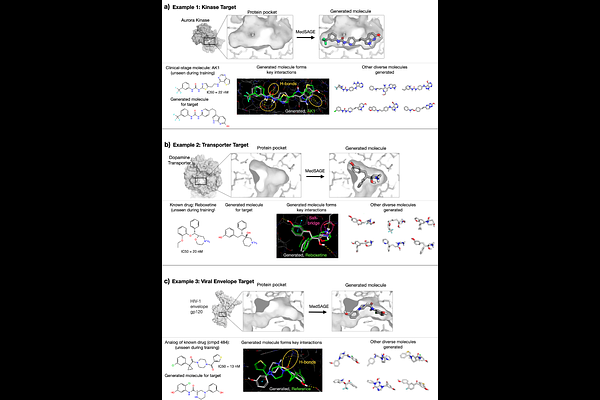MedSAGE: Bridging Generative AI and Medicinal Chemistry for Structure-Based Design of Small Molecule Drugs

MedSAGE: Bridging Generative AI and Medicinal Chemistry for Structure-Based Design of Small Molecule Drugs
Powers, A. S.; Lu, T.; Koodli, R. V.; Xu, M.; Gu, S.; Karelina, M.; Dror, R. O.
AbstractWhile generative AI is transforming the de novo design of proteins, its effectiveness for structure-based design of small molecules remains limited. Current methods, including diffusion models, often produce small molecules with difficult-to-synthesize structures, poor medicinal chemistry properties, and limited target selectivity. To address these limitations, we introduce MedSAGE, a novel generative AI framework that adapts diffusion models specifically for de novo small-molecule design. Rather than using atoms or strings, we develop a novel representation for generating molecules using fragments relevant for medicinal chemistry. Chemical and geometric information characterizing these fragments is embedded in a smooth and interpretable latent space. We also develop an algorithm to optimize the connectivity between generated fragments while preserving chemical validity and synthesizability. In a benchmark of multiple methods across 25 therapeutically relevant protein targets, MedSAGE achieved state-of-the-art performance, producing synthesizable, drug-like molecules with predicted affinity and selectivity closely matching known drugs and drug candidates. Compared to large-scale virtual screening, MedSAGE produced molecules with high predicted affinity over 100 times more efficiently. Our results demonstrate that MedSAGE is already practically useful and paves the way for next-generation tools in structure-guided drug design.